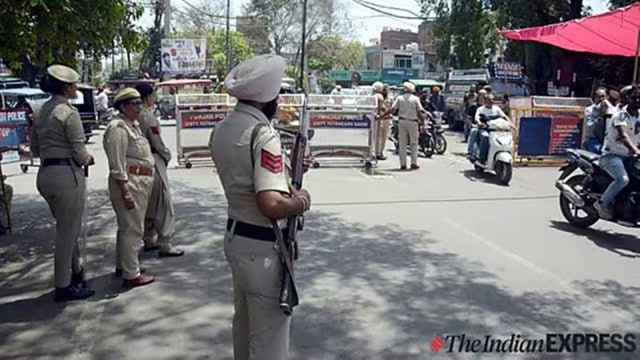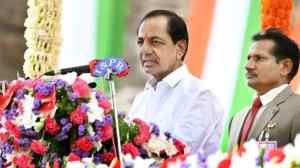Khalistani militants, gangsters, narcotic smugglers have pooled resources under ISI game plan: Punjab Police
DGP Gaurav Yadav says operatives of Pakistan’s ISI are directly calling criminals to ‘goad them into action to foment trouble in Punjab’.
 With stolen two-wheelers being used to perpetrate the latest wave of violent attacks in the state, district police officers have also been directed to utilise the VAHAN app and software at checkpoints. (Representational Image)
With stolen two-wheelers being used to perpetrate the latest wave of violent attacks in the state, district police officers have also been directed to utilise the VAHAN app and software at checkpoints. (Representational Image) Punjab Police have said their investigations into recent incidents of organised crime revealed that under the guidance of Pakistan’s Inter-Services Intelligence (ISI), Khalistani militants have joined forces with gangsters based abroad and narcotic smugglers and are pooling resources to carry out violence in Punjab.
A detailed study of how human resources were utilised in incidents of extortion-related violence and grenade attacks perpetrated by Khalistani outfits like Babbar Khalsa International and Khalistan Zindabad Force has led the police to definite conclusions regarding the interoperability of these three groups in Punjab, senior officers said.
DGP Gaurav Yadav held a detailed briefing on Monday with field police officers from the border districts and the Amritsar and Jalandhar police commissionerates to sensitise them to the challenges at hand. To emphasise the nature of the activities being undertaken in this cross-criminal network, the three police headquarters branches dealing with these threats were represented in the briefings by Special DGP (internal security) R N Dhoke, ADGP (Anti-Narcotics Task force) Nilabh Kishore and ADGP (Anti-Gangster Task Force) Promod Ban.
Speaking to The Indian Express, DGP Gaurav Yadav said his officers were tackling this problem with a calibrated approach to disable the designs of the ISI and the criminal or Khalistani elements. “What has happened is that with the strong police crackdown in Punjab on the anti-national and criminal networks, there has been a shortage of willing hands available to do the bidding of these terrorist leaders and gangsters. We have nabbed most of their associates, as a result of which they have run out of people on the ground,” he said.
This situation has led these three elements—extortion gangsters, narco-smugglers and terrorists—to join hands under the supervision and direction of the ISI, the DGP said. “The levels of desperation of the ISI to foment trouble in Punjab are so obvious that their intelligence operatives are now making direct phone calls to criminals to goad them into action,” he said.
Detailed roadmap for action
With this new scenario mapped, senior police officials have shared a detailed roadmap with district police chiefs and other officers, including a list of associates and small-time couriers and operatives acting in cahoots with each other. “We have gone in for a unified-command approach and are giving a unified push to destroy this nexus, which is why all three prongs of the offensive involve counter-intelligence, the Anti-Gangster Task Force and the Anti-Narcotics Task Force,” said a senior officer familiar with the developments.
With stolen two-wheelers being used to perpetrate the latest wave of violent attacks in the state, district police officers have also been directed to utilise the VAHAN app and software at checkpoints.
The DGP is also learnt to have asked field officers to ensure thorough documentation and paperwork regarding the offences for which criminals have been nabbed, so they can remain behind bars for extended periods. “It has been emphasised that proper investigations must be conducted, and there should be a separate team pursuing the ‘pairvee’ of cases related to organised crime. Since witnesses who come forward to depose in such cases are few and far between, it is crucial to have a watertight scientific investigation to convict the accused,” said a senior officer.
“Good documentation is also required when we issue red corner notices or when the deportation of criminals is taken up from another country through the appropriate channel of the Government of India. Foreign governments require watertight investigations and evidence, which is very important,” said the senior officer.
Another aspect with which field officers have been sensitised is that the new criminal laws, the Bharatiya Nyaya Sanhita, contain sections that can be applied in organised crime cases, and these laws should be closely studied and utilised. Earlier provisions of laws like Maharashtra Control of Organised Crime Act had to be invoked for these offences.












